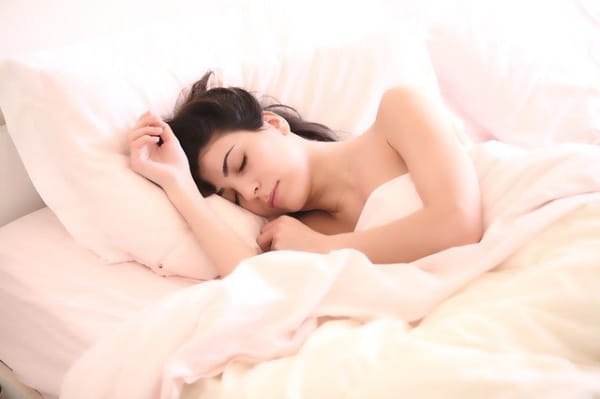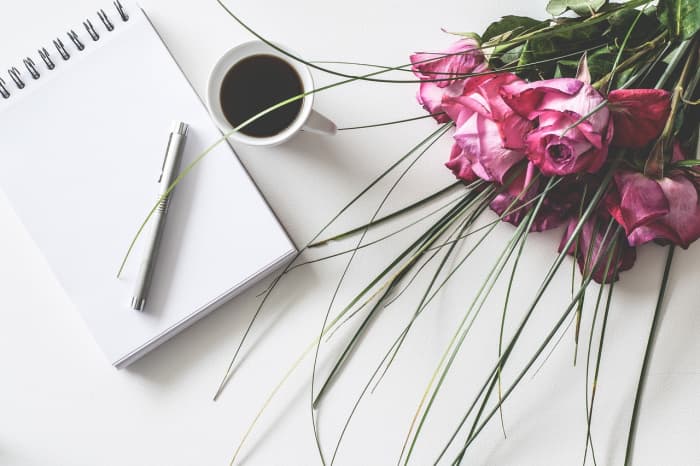Protect your brain with sleep

Last January I mentioned that I had watched a story on CBS Sunday Morning with five tips for protecting the brain from dementia. I promised a separate post on each of the five tips. Today is part 4 of that series. If you missed the others and would like to catch up, you’ll find Tip #1 move more here, Tip #2 eat better here, and Tip #3 try new things here.
This is the part where I remind you that I am not a doctor or medical expert of any type. I am simply relaying information from those who are.
5 tips for protecting your brain
As a reminder, according to Dr. Sanjay Gupta, there are five basic things we can all do to fight off dementia, even if we are genetically predisposed to it.
- Move more
- Eat better
- Try new things
- Get a good night’s sleep
- Interact socially
Did you join me in March’s challenge to try new things or do old things in a new way? If so, I’d love to here what you did? Please share the comments.
Now on to tip 4…
Get a good night’s sleep
I can hear half of you saying I can’t possibly get that much sleep; I’m too busy. I’ll sleep when…I retire, when the kids are grown…when I finish this project…the list goes on. The other half is saying, “I wish I could sleep. I just lie in bed staring at the ceiling or tossing and turning.” I feel your pain; I’ve been in both positions. However, if you are serious about protecting your brain from dementia, it’s worth another try to get a good night’s sleep.
How much is enough
How much sleep translates to a good night’s sleep? According to sleep scientist Dr. Matthew Walker, “When you’re awake, your body produces adenosine, a chemical that makes you drowsy. This continues to accumulate for roughly 16 hours, until you register the feeling of exhaustion. It takes about eight hours to clear your adenosine cache, hence the recommended nightly sleep quotient.”
Of course, our sleep needs change with age. The Mayo Clinic recommends seven to nine hours for adults and warns, “Some people claim to feel rested on just a few hours of sleep a night, but their performance is likely affected. Research shows that people who sleep so little over many nights don’t perform as well on complex mental tasks as do people who get closer to seven hours of sleep a night.”
Why it works
When your body goes to sleep, your brain gets to work taking the experiences of the day and consolidating them into memories.
When we sleep, our brain gets a chance to reformat its proverbial hard drive, allowing storage of new and useful information. Dreaming, scientists believe, allows the retrieval of memories in a neuro-chemically neutral environment, potentially allowing us to better process painful experiences. The deep-sleeping brain can even problem-solve, giving new meaning to that age-old expression Why don’t you sleep on it?
Dr. Matthew Walker
Tips for improving sleep
Of course, understanding the importance of a good night’s sleep and actually getting one are two different things. If you have trouble falling or staying asleep, you’ve no doubt heard much of the standard advice (which does hold true):
- Limit caffeine and alcohol.
- Maintain a consistent sleep schedule.
- Turn off electronics at least an hour before bedtime.
- Keep your room dark and cool.
In Dr. Walker’s MasterClass he offers a deep dive into the mechanics of sleep, its importance, and ways to improve sleep quality. I highly recommend it. In a nutshell, in addition to the basics listed above, Dr. Walker recommends the following:
- Find your natural sleep pattern (chronotype) and honor it as best you can. Are you a morning lark or a night owl? If possible, adjust your schedule to take advantage of your body’s natural sleep patterns.
- Expose yourself to natural sunlight for at least 30 minutes a day and then dim the lights in the evening.
- Finish heavy exercise at least a couple of hours before trying to sleep. It may be hard for your brain to suddenly unwind, if you work out too close to bedtime.
- Create a relaxing routine before bedtime. Perhaps include a worry journal. Get all of your racing thoughts out of your head and on to paper. You may also want to include a warm bath. As the body cools itself from the bath, that cooling signals your brain that it’s time to sleep.
April’s challenge
So what do you think? Unless you’ve got this sleep thing down pat…and if you do, we’d love to hear your secret…but for the rest of you, will you join me in setting a goal to make at least one change to improve your all-important sleep?
I confess I’ve already started with #4, create a relaxing routine before bedtime…and I think it’s helping. For April, I will add #2, get 30 minutes of natural sunlight each day and dim the lights in the evening.
I’ll be back next month with the final tip for protecting your brain: interact socially.
Your turn
- Did you try something new in March? What was it? How did it go?
- Will you try one of these sleep tips in April? Which one?
- How many hours on average do you sleep per night?
- Are you a morning lark or a night owl?
Shared on the GRAND Social.
Image by Claudio_Scott from Pixabay








Hi Christie – sleep seems to be an all important topic in our house these days (much like it was when our children were babies and waking us up regularly at night!) Now for me it’s the ‘joys’ of hot flashes, snoring husband, early morning noises (dogs barking etc). I seem to sleep more lightly these days and find it harder to get back to sleep if I wake during the night. I do try to turn off my laptop well before bedtime and to read – although I read on a Kindle now and I wonder if that’s less sleep inducing than a paper paged book?
One of the biggest blessing for me with retirement is not having to set my alarm, so I wake when my body feels ready – and that’s a lovely feeling.
Much of what you said feels familiar to me, Leanne. I don’t sleep as soundly as I used to either. I do think reading from an electronic device is less sleep inducing than a paper book. Do you switch your Kindle to a night-time setting to reduce the amount of light that is emitted? I am looking forward to a time when I can wake up naturally most mornings and not rely on an alarm clock. I recently took a week of vacation (or staycation more accurately), and that was one of my favorite things about it!
Hi Christie, I agree with Leanne how sleep is a daily topic in our home. Sleep has been an issue all my life for me, and I am often in the ‘acceptance’ stage. I just finished reading Dr. Sanjay Gupta’s book, “Keep Sharp, Build a Better Brain at any age”. Loved it! One sort of rule we have in our home is not discuss any urgent/stressful topics in the evening and I don’t look at news sites in the evening. I do believe we are wired differently since I have friends (female) who easily sleep the 6-9 hours every night. A funny and not so funny contribution: friends in my yoga class discussing sleep issues – one mentioned how sleep deprivation is used as a form of torture. Lots of great information in this post! Thank you.?
I used to sleep more soundly, Erica, but I’ve struggled as I get older. My younger sister, like you, has had sleep issues her whole life. I wish I had an easy fix. Thanks for the book recommendation. I have not read Dr. Gupta’s book, but it’s now on my list. I agree with your tactic of not discussing stressful topics before bedtime. If something is stressing me out, it does help me to write it down, empty my head so to speak. I always finish up with a gratitude list or three good things that happened during the day.
Let’s see. I tried something new in March and it was playing some games that teach you coding skills. I didn’t like the games well enough to continue them into April but I want to keep learning about how to code.
I’m a good sleeper. I sleep about 9 hours every night. Any less than that and I get a headache. My relaxing routine before bed is to play some games on my phone. A little bit of Candy Crush Soda Saga and I drift off.
Congratulations on trying something new, Ally. As you know firsthand, we don’t always love the new things we try, but it helps steer us in the direction of what else we might enjoy…and of course, stimulates our brains. That’s great that you sleep nine hours…and get good sleep. I try to stay away from electronic devices right before bed, but if it works for you, that’s great. I do love a little Candy Crush to slow down my brain after a long day of work.
Hi, Christie – I am a firm believer in the healing benefits of a good night’s sleep.
I am finding that I get older, I need more sleep than I did before.
When I get too little sleep – the next day is now totally wrecked for me.
Thanks for another very insightful post.
Hello Donna. It is so interesting for me to hear how different people feel about sleeping and the affects of aging. I know when I was young, I could occasionally stay up quite late and get up early the next morning and power through. Now if I miss out on sleep, I feel it by the next afternoon. However, I’m also finding it more difficult to get the deep sleep I used to. On those rare nights when I do, it feels like a heavenly gift!
Hi Christie, I normally get about 7 to 8 hours of good sleep, more if I avoid wine with dinner. I avoid caffeine and sugar after 3:00 in the afternoon, and I try not to read or watch anything stimulating before bedtime. When I don’t stick to my routine, I do pay for it. Sometimes I deliberately watch a Hallmark movie that I have seen before, knowing I will drift off mid-way. I also think it’s important to limit fluids before bedtime to avoid the 2 am potty run!
I haven’t tried anything new this month, but I do stay active and engaged. I think that helps a lot. Great share. Thank you.
Hello Suzanne. I have been avoiding caffeine in the evenings, except for one cup of decaf coffee after dinner. I should probably try eliminating the cookies I’ve been having with that coffee…just to see if it has an effect on my sleep. I’m definitely on board with not watching anything too stimulating before bed. I notice a profound effect when I break that rule. My husband and I often watch an old gameshow or an episode of Matt’s Off Road Recovery on YouTube as the last thing before we turn the television off. The evening liquids is a fine balance for me…drink enough not to be thirsty, but not so much, my bladder can’t hold out until morning! Who knew a good night’s sleep could be so complicated. 🙂
it’s always a good reminder how to keep good “sleep hygiene”. I sleep well, usually. Right now, I am finding myself waking up early with all kinds of to-do lists forming in my head. So I get up and write them down. Otherwise they just spin and spin. So, I’ve been finding myself exhausted by early evening and getting into bed earlier and earlier – quite the spiral. But I know it’s short term. One of the things I do like about retirement is waking up when I wake up – no alarms!
You’re the second person, Pat, who has mentioned the retirement benefit of no alarm clock. I look forward to that day! I can certainly understand waking up with to-do lists in your head under your present circumstance. It sounds like going with the flow is the best way to handle that. How is the move going?
I started doing jigsaw puzzles last month and using Duolingo to learn some Spanish. I’ve really enjoyed both!
As you know, sleep is not really my friend. I’ve tried lots of things, but found no magic solution. However, I love naps and since I only work half days I can often take one.
I’m happy to hear that you enjoyed your new things, Cindy! As for sleep, I wish there was a guaranteed cure for insomnia. I’m glad you can at least enjoy a good nap on occasion. Is there anything from this post that you haven’t tried already?
I need to pay more attention to this! I read Lisa Genova’s book Still Alice a couple of years ago and it scared the daylights out of me. Dementia runs in my family and I have a number of aunts who were affected by early onset Alzheimers. I am trying to do all the right things, but am still fearful. Every time I go into a room and forget what I came in there for I get nervous! I do constantly work on keeping my brain sharp, which comes naturally to me as I love reading and synthesizing. I know that I can only do what i can and that nature will play a role and so I try not to get overly paranoid!
I can relate to your worries, Michele. My mother and my grandfather both had Alzheimers–though not early onset. Still, I want to do all I can to nourish my brain. As you pointed out, it isn’t completely within our control. All we can do is give ourselves the best chance possible by taking care of ourselves and then enjoy the present moment to its fullest.
For many years I slept well. Then when my mom started having trouble, my sleep started suffering. I would ruminate for hours some nights. Melatonin usually helps me to fall asleep but I can still wake up in the middle of the night and worry, then struggle to get back to sleep before dawn. And the dreams with melatonin…like a night at the movies!! Interesting that solutions to problems can come to us during deep sleep. I would agree that often happens for me.
Trauma definitely affects our sleep…and I’ve found that the effect continues sometimes even after the crisis has passed. It’s like we’ve rewired our brains to wake in the night. I’ve been working on self-soothing with slow, deep breathing and other mindfulness practices. It usually works, but not always. Wishing you a peaceful night’s sleep!
A great topic, Christie. Our JULIE has chosen your post to be featured in the next Blogger’s Pit Stop.
Kathleen
Thank you Kathleen! It’s always an honor to be featured in the Bloggers Pit Stop.